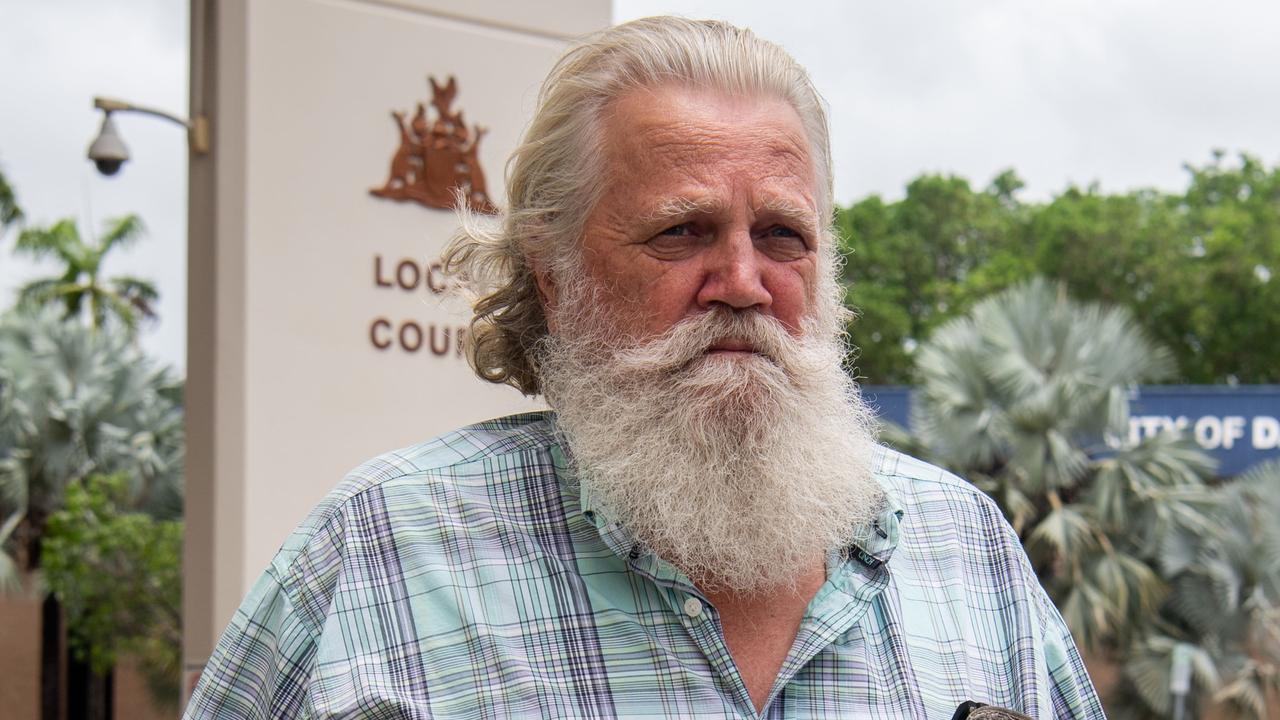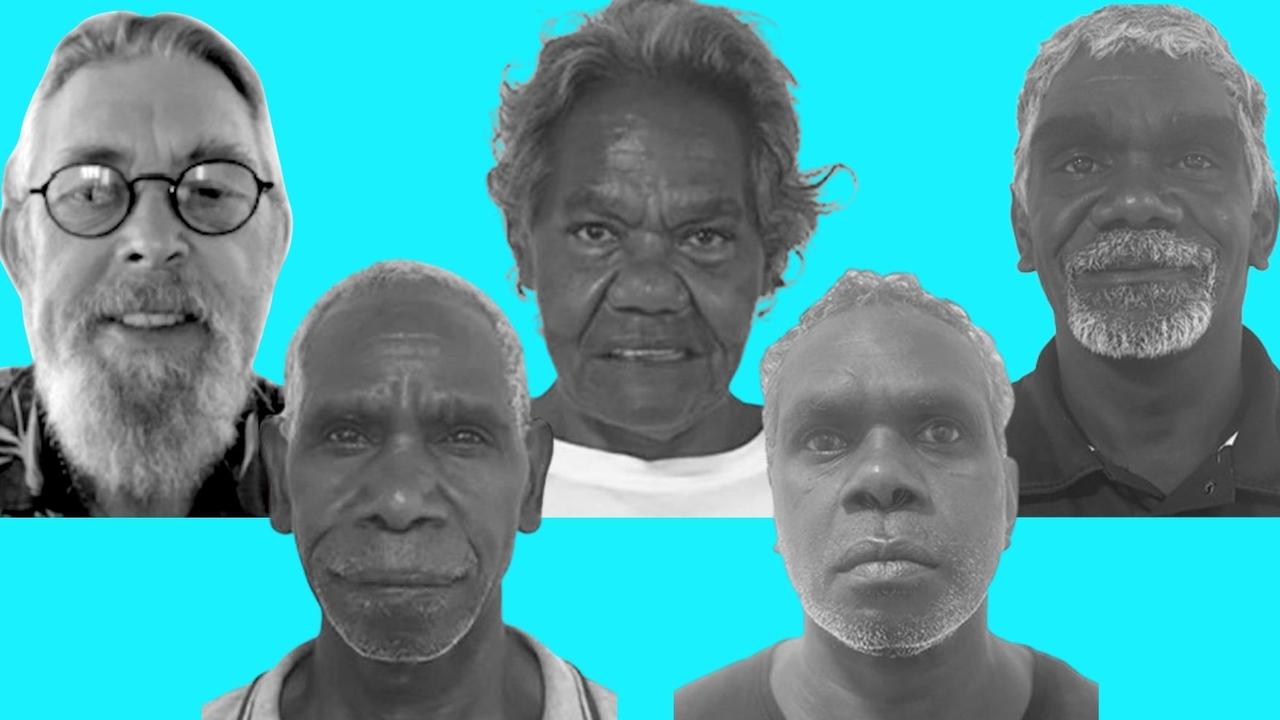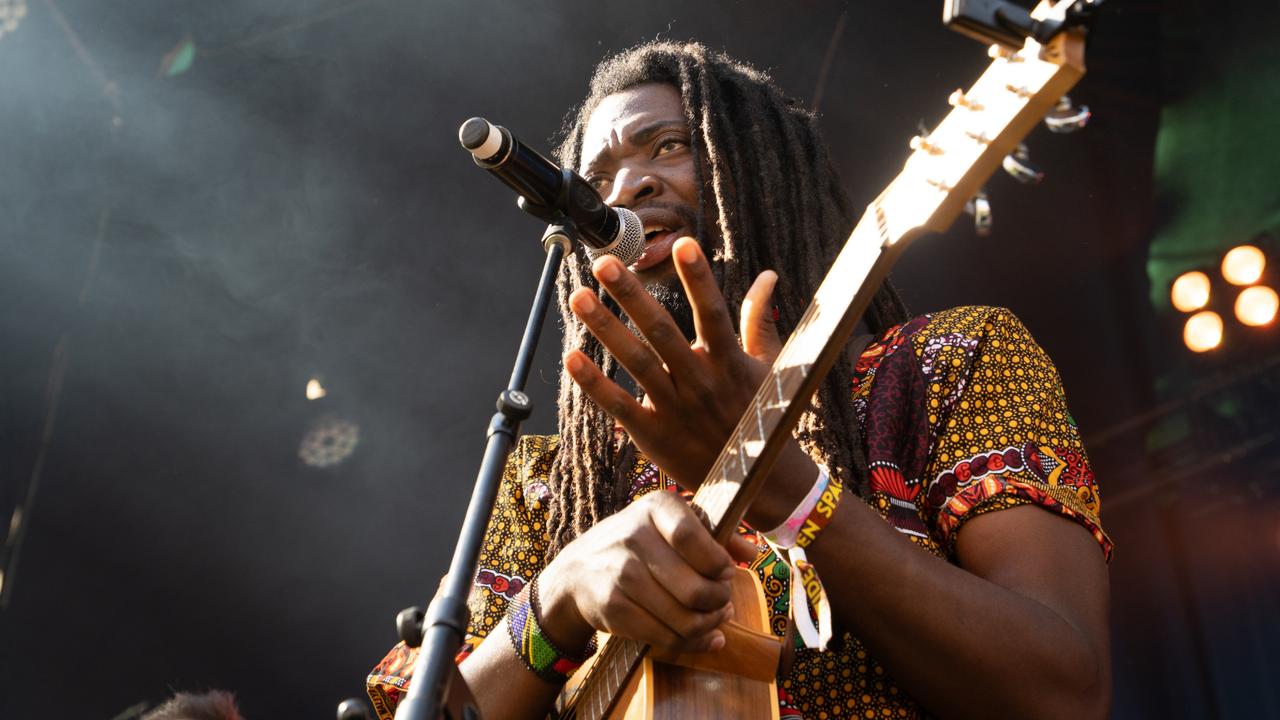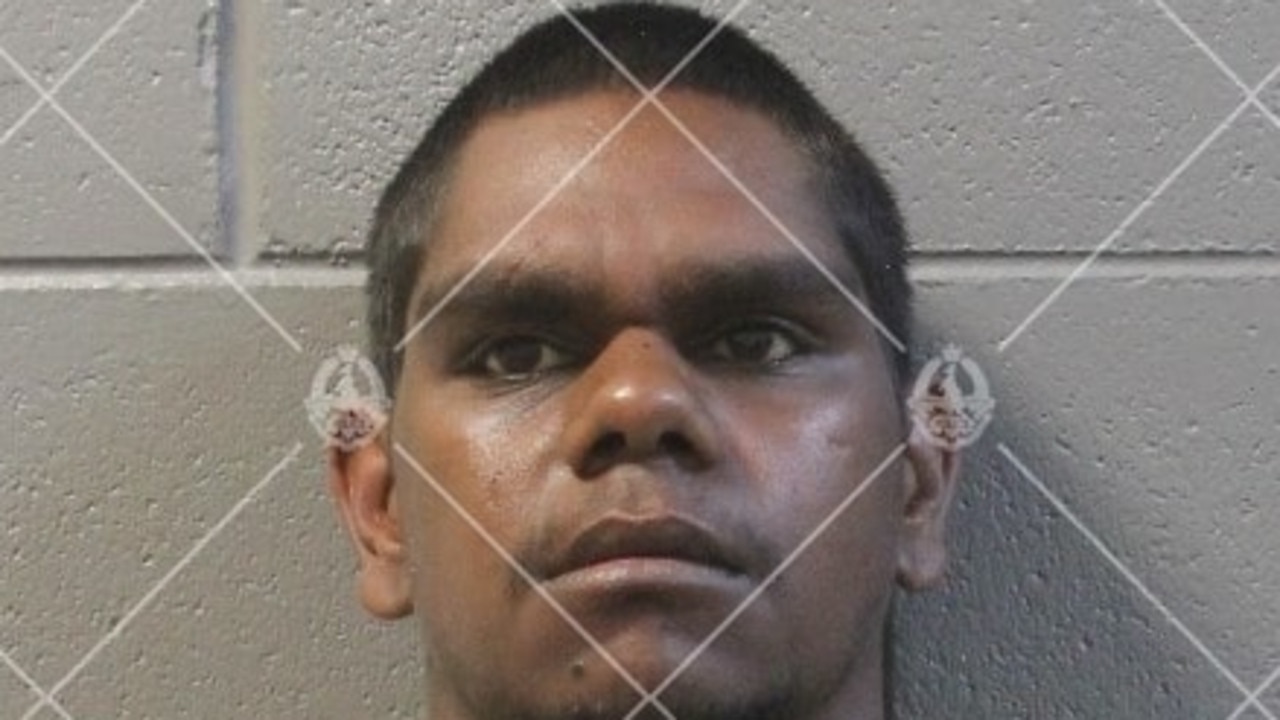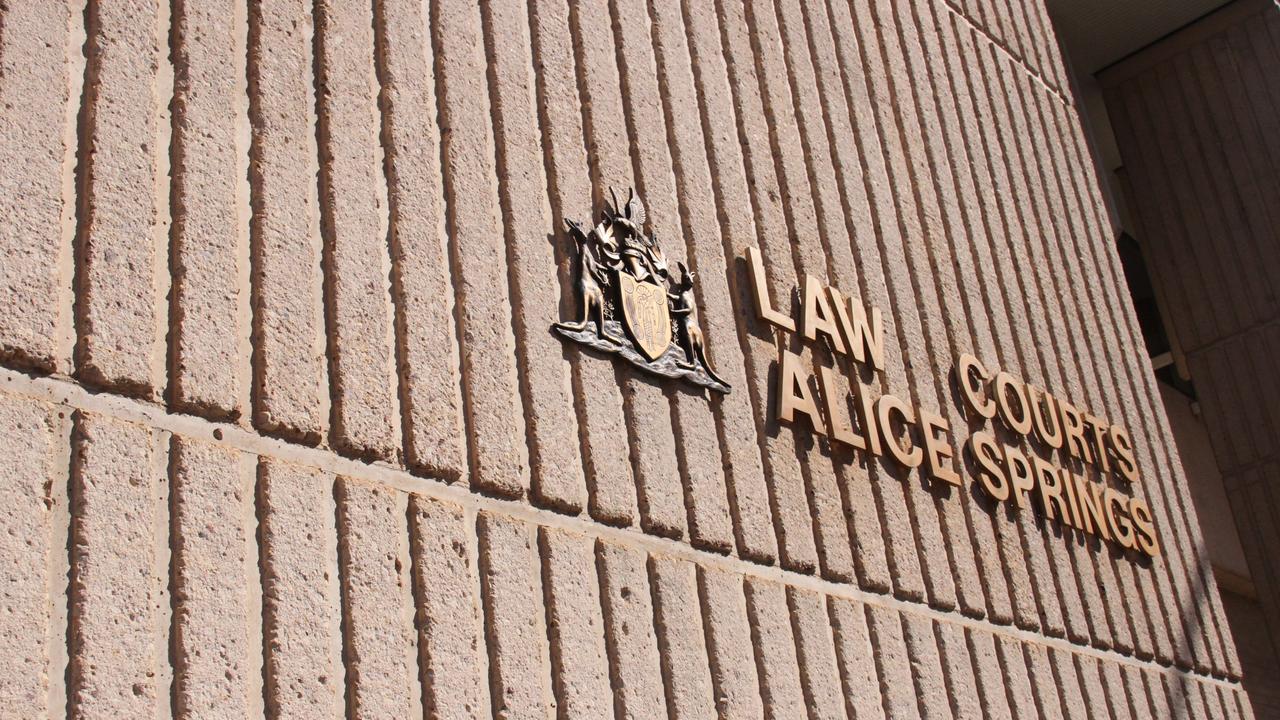Aunty Bilawara Lee recalls surviving Cyclone Tracy in original composition Gurrulwa Guligi
Larrakia Elder Bilawara Lee has shared her incredible Cyclone Tracy story in an original composition. LISTEN TO AUNTY B AND THE DARWIN SYMPHONY ORCHESTRA.

News
Don't miss out on the headlines from News. Followed categories will be added to My News.
Images of the almost otherworldly destruction wrought by Cyclone Tracy are familiar to most Territorians – cars in swimming pools and houses turned inside out – but for this survivor the clearest memories are of smells and sounds.
Larrakia Elder Bilawara Lee was 24 when Tracy hit Darwin on Christmas Day 50 years ago.
“To this day I can’t stand the sound of tearing wrought iron metal, it freaks me right out, because I was laying in the bathtub with the kids and my husband, listening to the roof tear,” Aunty B says.
“Bang. That’s a big piece of wood stuck right through the front door.”
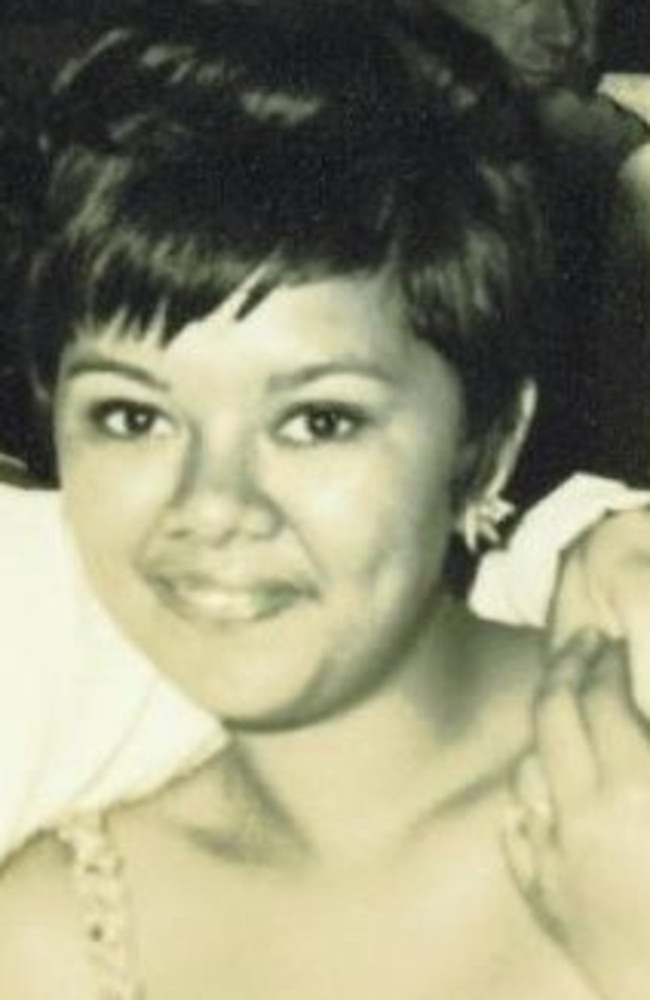
She recalls weeks of putrid stench blanketing the city as holiday feasts rotted in fridges without power, and pets and vermin decomposed under piles of rubble.
“You could bottle the smell of wet things,” she says.
“Even trees, because they’re ripped apart, you get sap and the leaves smelt really strong. And lots of fires, we had fires burning off rubbish and to cook food – we all learned how to light a fire in the wet.”
In many ways the weeks after the storm were the hardest, she says, with “bad men” taking advantage of the empty streets to loot, rape and kill.
“I was a pretty cute young woman. My Dad had to go to work, he was head orderly at the hospital and the bodies were stacking up, and my husband was in charge of security at the Port Authority, so I was left with two dogs, heaps of kids and a couple of .22s,” Aunty B says.
“I tied the dogs to the front door and back door, and I used to go out and do target practice so people watching knew: Come near me, I’ll shoot ya.”
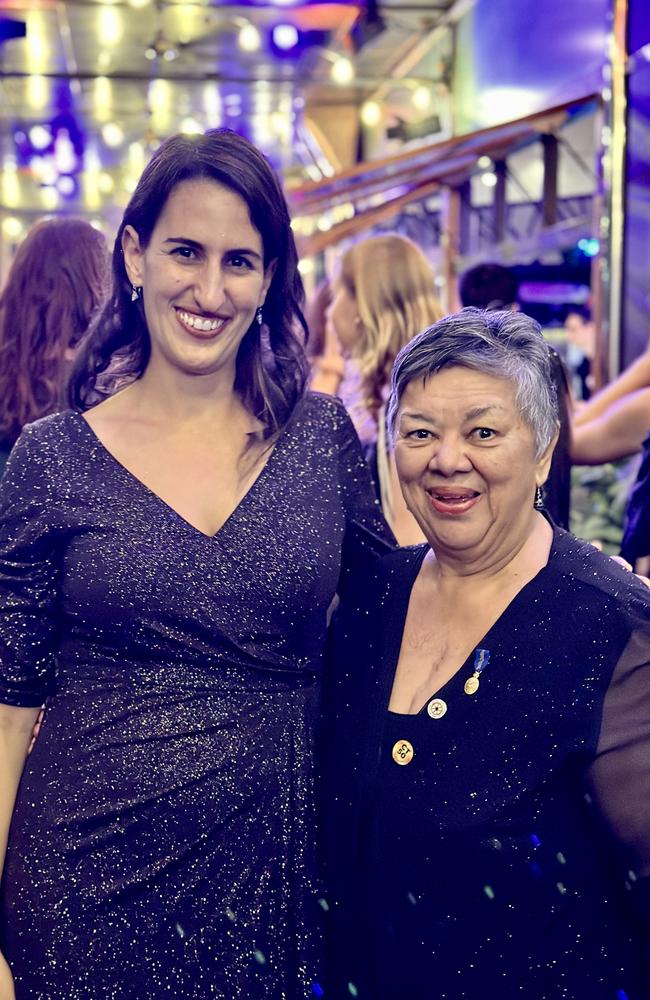
It is fitting Aunty B’s story has been documented in an original piece commissioned by the Darwin Symphony Orchestra, Gurrulwa Guligi (Big Wind), combining her voice with 14 layers of archival sounds, orchestral music and field recordings.
Composer Netanela Mizrahi recorded Aunty B’s story from her hospital bedside as the now 74-year-old recovered from a stroke earlier this year.
Mizrahi says oral storytelling allows people to connect to the experience in a deeper way. “We can read extensively about the history of a natural disaster and understand it intellectually, but to actually connect on a human level to one incredible person’s story, is what really goes deep,” Mizrahi says.
“I think that’s where real understanding of the horrors of an event like a cyclone is actually cemented.”
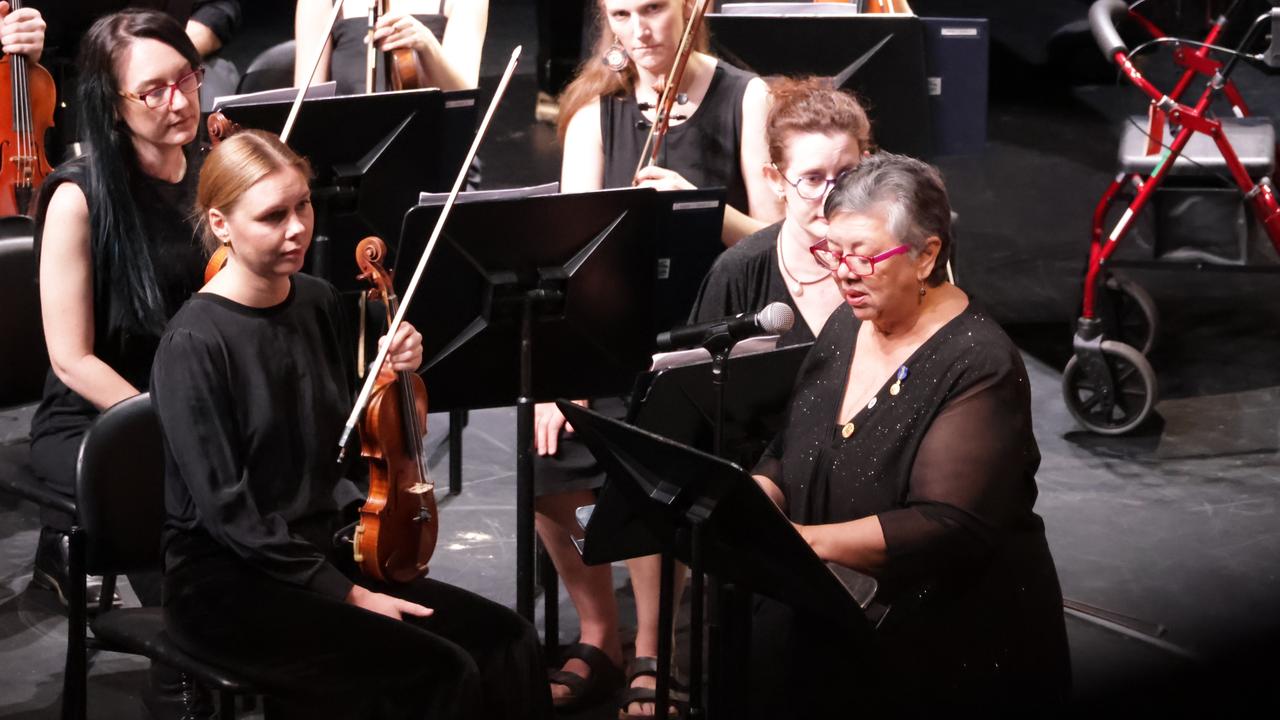
It was important for Aunty B the piece started and ended with her namesake – sounds of the red-tailed black cockatoo.
The bird is a symbol of change for the Larrakia people, and Aunty B remembers the bilawara disappearing before the cyclone, and slowly returning in the weeks that followed.
She says Larrakia people believe rapid change is what led to such a devastating event, and another may be sent soon.

“One of the sacred sites for us is Dariba Nunggalinya, Old Man Rock, which sits off the Casuarina coastline,” she says.
“He sits and protects and watches Larrakia country, and he gets really upset when development or changes in our landscape happen too fast, too hard and without consultation.
“So he sends a cyclone to clean the place up, level it out. And he did that – it came about after many, many years of really rapid change and expansion of Darwin, and I reckon another one’s due.”
The DSO will tour Gurrulwa Guligi (Big Wind) through the NT in April, taking the piece to Katherine, Tennant Creek and Alice Springs.
More Coverage
Originally published as Aunty Bilawara Lee recalls surviving Cyclone Tracy in original composition Gurrulwa Guligi




